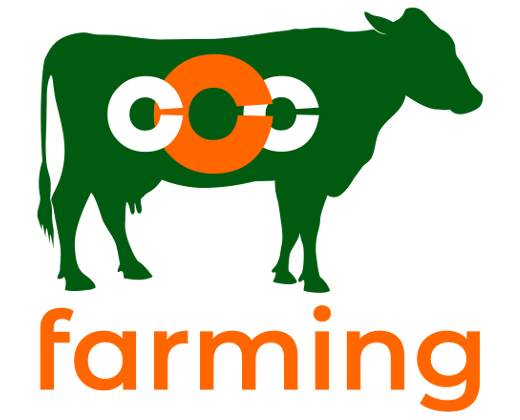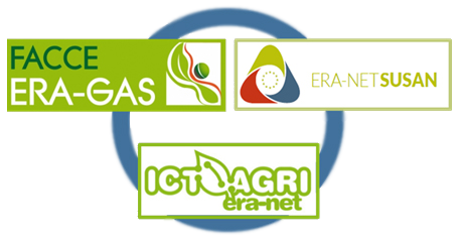Minutes of CCCfarming physical meeting in Rennes from 6th to 8th of July 2022
INRAE L’institut agro, agrocampus ouest Rennes
Present: Christoph Flechard; Paul Robin; Katja Klumpp; Nadege Edouard (online); Valentina Becciolini; Matteo Barbari; Diāna Ruska plus 2 colleagues Adam Cieślak; Lena Fehmer; Niklas Solzer; Caroline Evrat-Georgel; Violeta Juskiene; Marion de Vries; Paul Galama Abele Kuipers; Bob Rees (11/2 day); Xavier Verge (11/2 day)
Wednesday morning.
- Minutes and announcements
- Minutes of CCCfarming TEAMS meeting 20 April 2022 are approved
- Explanation about program Rennes. Nadege Edouard is ill at home. Chris Flechard and Paul Robin host the CCCfarming consortium.
- EAAP Porto 5-9 September; all partners are participating in the seminar with at least one representative; this is very positive for the project.
- ADSA Climate care cattle seminar in Kansas City Missouri, USA on 19-22 June 2022; Sven Koenig, Peter Groot Koerkamp and Abele Kuipers participated.
- Progress with NPC data and tools (WP1.4) Marion de Vries, WUR, explains about state of art. The farm plan will be based on the 2020 data. Especially Italy and Poland have still work to be done – action Valentina and Adam. As exception, for France the farm plan will be based on the 2021 data; these data have to be available soon – action Xavier.
- Reports of WP1.1 and 1.2: Valentina Becciolini, Unifi, tells that the farm data overview is completed; but she still would like pictures added from Lithuanian and Latvian farms – action Violeta and Diana. Question remains: which farms can be put on the external website? Decided is to put this overview now on the internal website to start with.
- A report about techniques of measuring emissions has been prepared. The ventilation part is still missing. INRAE representatives offer again to help improving the manuscript.
- A review report about application of drones is under way.
- Valentina will present the outcomes of the kitchen table questionnaire at EAAP Porto seminar, hopefully with support of Vera Eory – action Vera, Valentina (Abele is prepared to help).
- Paul Robin explains. Still work has to be done. SRUC has not yet delivered any data. The planning is to have the analysis on basis of the presently available data ready for the EAAP Porto meeting. Coming week’s Xavier and Paul Robin will work on it – action Xavier, Paul Robin, Paul Hargreaves. Lab analyses in France are interrupted in month of September and October (announcement of Anne-Sophie Lissy).
- WP2 and WP4 activities
- Separation of urine and faces, different manure products, by Paul Galama, WUR
- Methane emission measured by hat construction in cubicles, by PhD student Cecile Levrault, WUR (online)
- Novel feeding practices related to animals and methane output, by Adam Cieslak, PULS. The feed additive “rumitech” will be examined in a trial. The goal is to reduce the methane emission. It will be done both in vitro and in practice. The additive will be part of a sugar rich ration. Emission coming from the animal as well as from the manure will be measured. Because it is a biological additive, the long term effect is questionable.
- Novel breeding traits related to methane output – by Lena Fehmer and Niklas Solzer, JLU
- Grass species, soil and biodiversity related to methane output – Bob Rees, SRUC and Katja Plump, INRAE plus colleagues from Poland and Latvia
- Perspectives of using drones + tests in France and Scotland. Valentina Becciolini and Matteo Barbari, UNIFI
- Intensive measurement campaign on pasture at experimental farm this spring (NH3, CH4, N2O, CO2 fluxes); two grazing regimes; preliminary results – Chris Flechard, INRAE ; this topic was also highlighted during the excursion to the experimental farm in the afternoon.
- WP4 continues with tasks from WP2 in a farm system approach; In context of WP4, which Farm systems to study in the various countries? This needs still to be addressed.
- Mitigation practices/strategies. A table with substantial number of emission mitigation practices was prepared by Paul Galama, on basis of the practices collected by the partner countries. The goal is to get a global idea about mitigation practices for both ammonia and methane in the various partner countries. Paul Galama has added some additional questions to the scheme. He will forward the scheme to all partners (done in meantime). Advised is that each local team discusses the various mitigation strategies, and next fill in the additional questions.
- Choice of strategies to input in the whole farm model BBPR (Dairy Wise) as part of WP3.3 and WP4.5. Paul Galama is brainstorming about a small set of strategies to model on. A few standard farms will be used, like intensive and extensive, high, and average production level, and grazing or not. This task will be developed later in this year.
- Nitrogen crisis in the Netherlands. Possibly, we organize a webinar about this topic.
- Status website, by Violeta Juskiene Additional efforts will be made to upload all material on the CCCfarming website. The process depends rather strongly on the availability of the technician involved on the website – action Violeta.
- Status Deliveries and milestones, by Abele Kuipers The status of deliveries and milestones needs by each partner organization to be reported to the national authority/paying agency. The CCCfarming project coordinator has to inform the joint call secretariat about progress made of all partners together. It is necessary to check better the deliveries and milestones in months to come. We observe that a few partners are behind in submitting data/executing tasks. These partners will be contacted again. If no satisfactory progress, then the directors of those institutes will be contacted by the coordination team – action WUR coordinating team
- Financial issues
The financial data need to be reported by each partner to the national agency. This is most times at request of this agency. There is usually a midterm and final reportage required. The coordinating project team can only signal a good, sufficient, low or too low input from the consortium partner. - Summary meeting
It was very good to have all partners physically together! We are grateful to our colleagues from INRAE to host us this week. Only Institute d’Elevage and SRUC were partly available to join the company.
Very positive that all partners will attend the EAAP Porto seminar early September.
Pilot farm data should be soon visible on the CCCfarming website.
Emission calculations and analysis based on data from pilot farms is expected to progress during next weeks.
Concern exists about progress with the completion of analysis of kitchen table questionnaire.
We received useful information about progress with the WP2 tasks. PULS will start its nutrition experiment. The grass species, soil and biodiversity experiments in 4 countries are under way. UNIFI makes quite some progress with the very interesting drone experiment. Two consortium partners will get involved in this task.
Breeding experiment was also planned and budgeted to be done in Latvia on a few farms. Follow-up not clear.
The link of the WP2 tasks (detailed research) to WP4 tasks (systems approach) needs more attention in a next meeting of CCCfarming.
WP3 tasks have been outlined. The goal is that a farm plan will be drawn for each pilot farm by the local expert in cooperation with the farmer/farm family to reduce emissions. For this purpose, simulation of specific practices will be done with the ANCA and AgreCalc tools. Also, the economic consequences need attention. This fall we will ask the farmer to choose their practices from a list of about 12 suitable practices to be simulated in the NPC tools.
Website to be updated. Active attitude encouraged.
There should be more focus on the deliveries and milestones. Partners will be contacted who are behind.
Officially one year to go for most partners. Abele Kuipers
Julian Bell from SRUC needs to be contacted to check if the collected AgreCalc data have been checked for validity – action Bob Rees.
Wednesday afternoon.
Outcome of 1st round of farm visits' emission outcomes with the IDELE/INRAE Excel calculation filePlanning of execution of WP3 (proposal of working group to Scotland was discussed).
The goal is to formulate a farm plan for all pilot farms of this project on basis of all info that is collected in the meantime and surely on the wishes of the farmer /farm family. For preparation of the farm plan a number of simulation calculations will be made for each farm. For this purpose, the AgreCalc and ANCA tools will be used. The simulations with the ANCA tool will be applied to the databases of two farms per country. AgreCalc simulations are applied to the other pilot farms. Each farmer can choose at least two practices to be simulated. The overall process will be guided by the Latvian team. The process with the farmers within each partner country is guided by the local expert.
The working group listed 12 mitigation practices to be considered for simulation. Marion de Vries and Paul Galama presented during the meeting a scheme with mitigation practices and other requested information which is necessary to perform the simulation calculations with the ANCA tool. Paul and Marion will complete this scheme shortly after the meeting (is in meantime send to all participants). SRUC team in cooperation with Latvian team is asked to do the same for the AgreCalc tool – action Bob Rees, Julian Bell, Paul Hargreaves.
It is advised (Paul Hargreaves) “to manage the expectations of the farmers”. In fact they can only choose for the simulation runs from a limited list of practices.
Economics of practices will be based on MACC method and prepared by Kaspars Naglis-Liepa.
A template for describing a short farm mitigation plan (1-2 page plan to be prepared for each farm by local team) has still to be finalized – action WUR, Latvian and SRUC team.
All farm plans will be collected and summarized by the Latvian team.
Start of activities towards farmers this fall!
Thursday morning.
Progress with WP2 – presentations took place about:
Friday morning.

